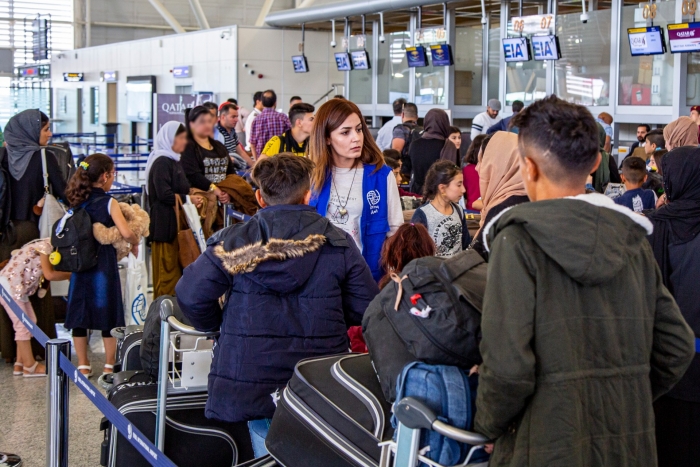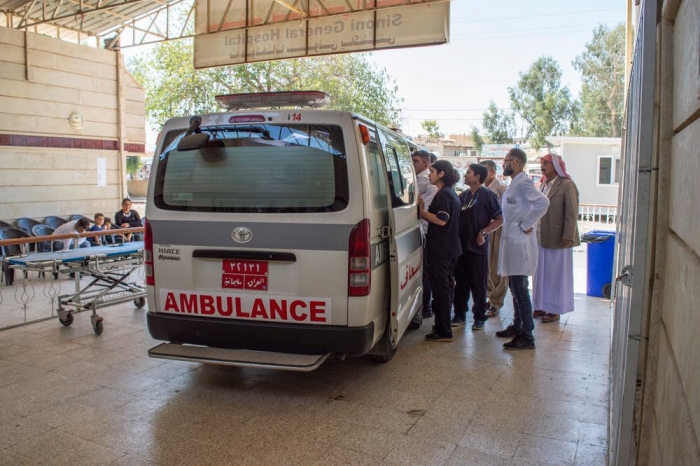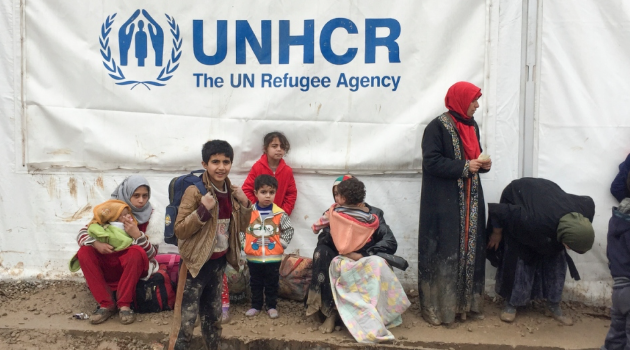Opening of new primary health care centre in Kawergosk to support the local and refugee communities
UNHCR, the UN Refugee Agency, and the General Directorate of Health (DoH) of the Kurdistan Regional Government inaugurated the new Primary Health Care Centre (PHCC) in Kawergosk sub-district in Erbil governorate, the Kurdistan Region of Iraq.
The new Kawergosk Public PHCC will provide primary health care services to over 20,000 people from the Syrian refugee and Iraqi displaced communities living in Kawergosk town and surrounding areas. As a result, UNHCR is contributing to give better access to quality health services to all without discrimination. The newly-established health care centre has the capacity to take 150 to 200 consultations per day
The construction of the PHCC was made possible through a generous contribution from PricewaterhouseCoopers (PwC), one of the largest professional services networks in the world. The land for the project was generously provided by the municipality of Kawergosk, and the Directorate of Health will be managing the PHCC and providing the necessary staff, medical equipment, and medicines.
Mr. Hussain Kalari, the Director General of Joint Crisis Coordination Centre, Ms. Nicole Epting, Deputy Representative of UNHCR in Iraq, Ms Kwestan Ahmed, the Mayor of Khabat district, Mr. Suhaib Asad, Tax Partner at PwC, and Jaivir Singh, Leader of the Global Office for Humanitarian Affairs at PwC, cut the ribbon to announce the opening of the new health centre. The PHCC provides comprehensive primary health care services, including consultations, provision of medicines, laboratory services, emergency referrals, immunization and growth monitoring, reproductive health services and dental care.
“We are grateful for the support and hospitality that the local communities in Kawergosk town have extended to the refugee communities in the nearby Kawergosk camp. In return, we are pleased to now support the national health services for the benefit of all, refugees and Kawergosk local communities alike.” said Nicole Epting.
Jaivir Singh “At PwC, we are committed to supporting and empowering those most in need in a sustained manner. The newly inaugurated primary health centre at Kawergosk will significantly improve the quality of care and services provided to the surrounding communities, making a positive contribution to their lives. I extend my thanks to our partner UNHCR Iraq and the General Directorate of Health (DoH) of the Kurdistan Regional Government for their efforts, as well as our teams at PwC for bringing our values to life.”
UNHCR extends its sincere gratitude to the people and Government of the Kurdistan Region of Iraq, PricewaterhouseCoopers and all the stakeholders who participated in making this project a success.
(Source: UN)
The post New Primary Health Care Centre opens in Kawergosk first appeared on Iraq Business News.




 11,292 refugees crossed into Iraq since the commencement of hostilities.
11,292 refugees crossed into Iraq since the commencement of hostilities.